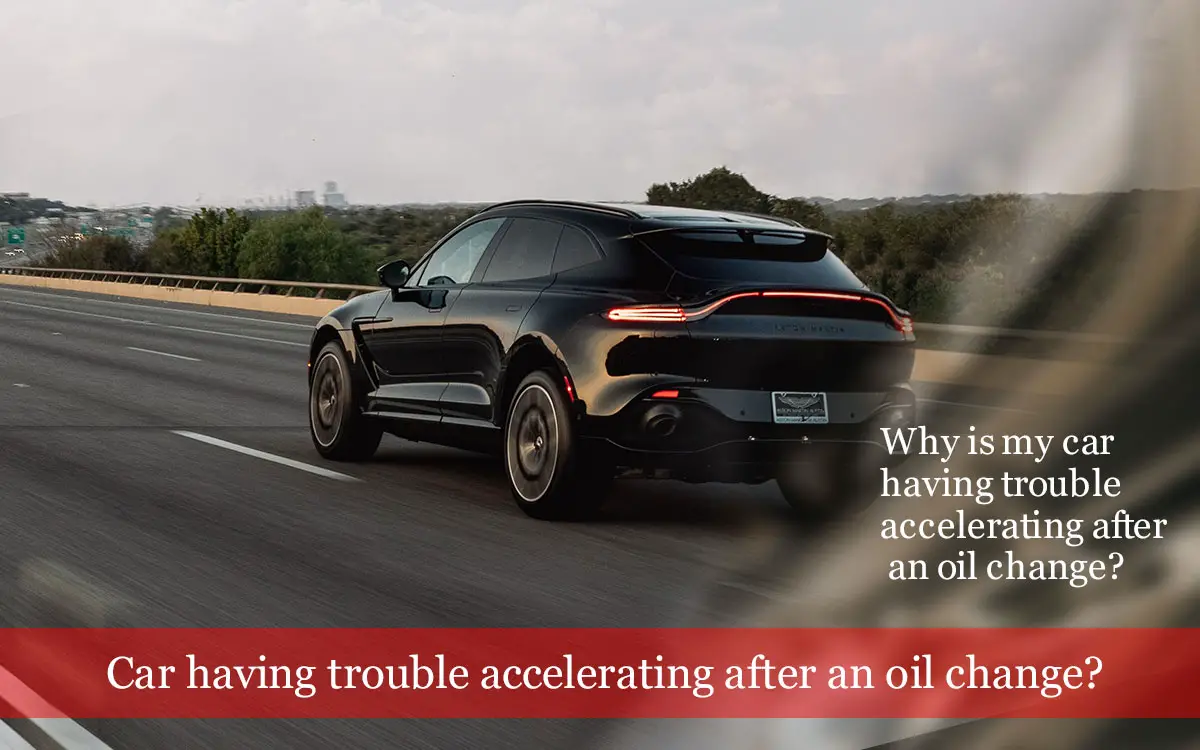Why Is My Car Having Trouble Accelerating

The dreaded feeling: you press the accelerator, and… nothing. Or, worse, a sluggish, hesitant response that leaves you feeling vulnerable in traffic. "Why is my car having trouble accelerating?" is a question that haunts drivers of all ages and vehicle types. But understanding the potential causes – and anticipating the solutions on the horizon – is crucial for navigating the evolving world of mobility.
The Usual Suspects (and Their Evolving Forms)
Traditionally, acceleration problems stemmed from issues like clogged fuel filters, faulty spark plugs, or a malfunctioning mass airflow sensor. These culprits haven't vanished, but their manifestations are changing. For example, fuel filters are becoming more sophisticated, often integrated into the fuel pump assembly, making DIY fixes more challenging. Similarly, spark plugs, while still critical, are being replaced by advanced ignition systems in newer vehicles, including coil-on-plug designs that require specialized diagnostic tools.
For combustion engine vehicles, maintaining a clean and efficient engine is more crucial than ever. Direct injection, now common, can lead to carbon buildup on intake valves, hindering airflow and reducing acceleration. Regular maintenance, including fuel injector cleaning and valve cleaning services, is vital. Furthermore, the increasing complexity of engine control units (ECUs) means that software glitches or outdated calibrations can significantly impact performance. A diagnostic scan with a modern scan tool can often pinpoint the problem, but understanding the data requires skilled technicians.
Electric Acceleration Anxieties (and Opportunities)
The rise of electric vehicles (EVs) presents a new set of acceleration-related concerns. While EVs are renowned for their instant torque, acceleration issues can arise from different sources. One common cause is battery degradation. Over time, the battery's capacity to deliver power diminishes, leading to slower acceleration, especially at higher states of charge. Battery management systems (BMS) are constantly working to optimize performance and extend battery life, but they can also limit power output to protect the battery from damage, particularly in extreme temperatures or under heavy load.
Another potential issue is thermal management. EVs rely on sophisticated cooling systems to maintain optimal battery temperature. If the cooling system malfunctions, the battery can overheat, leading to reduced performance and even potential damage. In these cases, the BMS may proactively limit acceleration to prevent further overheating. Finally, software glitches within the power electronics or motor control systems can also impact acceleration. Regular software updates are crucial for maintaining optimal EV performance and addressing any potential bugs.
Hybrid Headaches (and Harmonious Hybrids)
Hybrid vehicles, with their combination of combustion engine and electric motor, present a unique diagnostic challenge. Acceleration problems can stem from either the engine, the electric motor, or the hybrid system's complex interplay. A failing high-voltage battery, a malfunctioning electric motor, or issues with the power split device (which manages the flow of power between the engine and motor) can all lead to sluggish acceleration. Furthermore, the interaction between the engine and motor is governed by sophisticated software algorithms. Glitches in these algorithms can cause jerky acceleration, hesitation, or a lack of power.
However, hybrid technology is also evolving rapidly. Newer hybrid systems are becoming more integrated and efficient, with advanced features like regenerative braking and sophisticated power management strategies. Self-learning algorithms are also being developed to optimize performance based on driving style and road conditions. These advancements promise to deliver smoother, more responsive acceleration and improved fuel efficiency.
The Smart Automotive Revolution: Predictive and Proactive
The future of mobility is intertwined with smart automotive solutions. Connected car technology, combined with advanced sensors and artificial intelligence, is paving the way for predictive and proactive vehicle maintenance. In the future, your car will be able to diagnose potential acceleration problems before they even manifest. By analyzing data from various sensors, the vehicle's onboard computer can identify subtle changes in performance, such as reduced engine efficiency or battery degradation, and alert the driver to potential issues.
Furthermore, over-the-air (OTA) software updates will become increasingly common, allowing manufacturers to remotely fix software glitches, improve performance, and even add new features to existing vehicles. This will eliminate the need for costly and time-consuming trips to the dealership for routine maintenance and repairs. Imagine a future where your car proactively schedules its own maintenance appointments based on real-time data and driving conditions.
However, this connected future also presents challenges. Data privacy and cybersecurity are paramount concerns. We need robust security measures to protect vehicle data from unauthorized access and prevent malicious attacks. Furthermore, the increasing complexity of automotive software requires skilled developers and cybersecurity experts to ensure the safety and reliability of these systems. Accessibility to repair information is also critical, ensuring independent repair shops and vehicle owners can maintain and repair their vehicles without being locked out by proprietary software or data.
A Visionary Note
The question of "Why is my car having trouble accelerating?" will eventually become a relic of the past. As autonomous driving technology matures, vehicles will be able to anticipate and react to changing road conditions with unparalleled precision. AI-powered systems will optimize acceleration and braking for maximum efficiency and safety, ensuring a smooth and seamless driving experience. We are moving towards a future where mobility is not just about getting from point A to point B, but about creating a sustainable, connected, and intelligent transportation ecosystem that enhances our lives and protects our planet. The future of acceleration, and indeed, the future of driving, is one of seamless integration, intelligent automation, and unwavering reliability.
